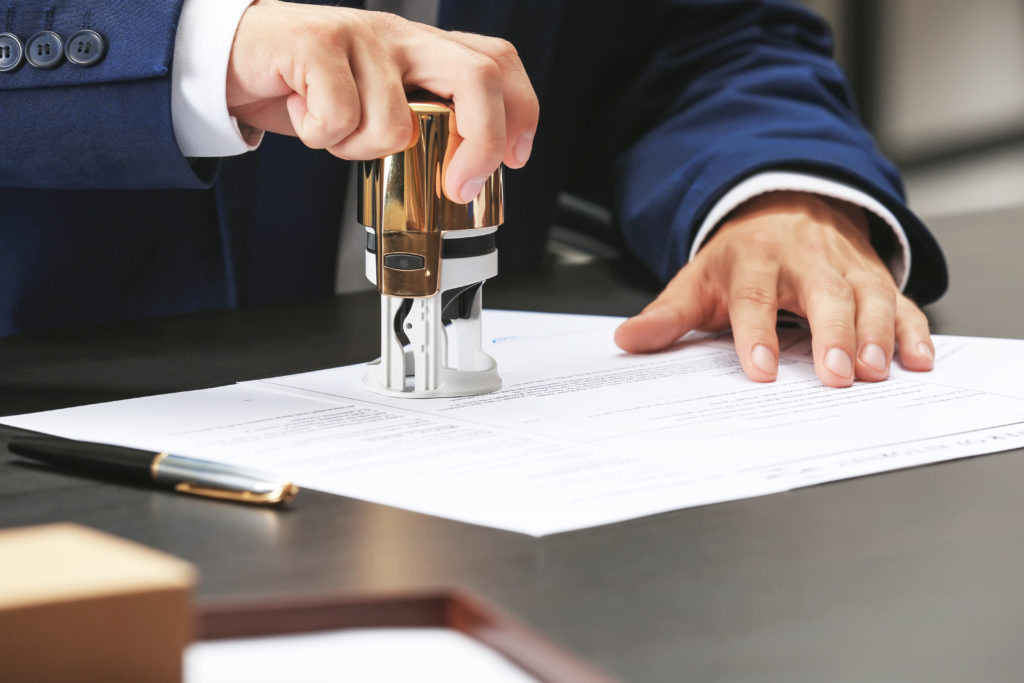Debunking Notarial Job: Simplifying the Duty and Importance of Notaries
In the intricate internet of lawful documents and confirmation, notaries stand as columns of guarantee and credibility. Their function, typically shrouded in enigma for many, brings substantial weight in guaranteeing the credibility and honesty of crucial papers. As guardians of validity and fact, notaries play an essential part in our culture, yet their work is not always totally understood. By unwinding the intricacies shedding and bordering notarial techniques light on the importance of their acts, a clearer understanding arises of the essential duty notaries play in upholding the fabric of legal and legal agreements.
The History of Notarial Work
Just how did notarial work evolve gradually to become an essential part of lawful and business purchases? The background of notarial work days back to old civilizations, where scribes played an important role in taping crucial info and verifying records. As cultures progressed, the demand for a much more formalized system to make certain the legitimacy of agreements occurred. This brought about the development of notaries, individuals appointed by the state to function as impartial witnesses in legal matters.
During the Middle Ages, notaries obtained importance in Europe, with their features increasing to include composing legal papers, licensing signatures, and protecting documents. The rise of worldwide profession even more emphasized the value of notarial operate in validating contracts and agreements throughout boundaries.
In the contemporary period, notaries continue to play a vital function in lawful and organization purchases by verifying identifications, validating the credibility of papers, and stopping fraud. Their function in accrediting the legitimacy of agreements includes a layer of security and depend the ever-evolving landscape of business and legislation.

Responsibilities and Responsibilities of Notaries
Notaries play a crucial role in confirming the authenticity of records and the identity of notaries. One of their main duties is to witness the signing of crucial records, such as acts, wills, and contracts, to ensure that all celebrations are getting in into contracts purposefully and willingly.
Furthermore, notaries are charged with carrying out vows and affirmations, which are critical in legal process and the execution of sworn statements. They license copies of original documents, providing assurance to organizations that the duplicates hold true replicas of the originals. Notaries have to maintain precise documents of all purchases they oversee to ensure transparency and responsibility. On the whole, the duties and responsibilities of notaries are crucial in protecting the stability and legitimacy of numerous documents and transactions.
Notarial Certificates and Signatures
Exhibiting meticulous focus to information, notarial certificates and trademarks offer as vital parts in validating the authenticity of lawful papers. Notarial certifications typically contain crucial information such as the day of registration, the names of the notaries, a description of the record, and the notary's main seal. These certifications offer a clear record of the notarial act, guaranteeing that the record can be easily recognized and traced back to the notary who supervised the process.
Trademarks play a crucial role in notarial job, as they indicate the contract and authorization of the parties entailed. Notaries meticulously witness the signing of records to confirm the identity of the notaries and site confirm that they are authorizing of their own totally free will. By attaching their main seal and signature to the document, notaries certify that the needed treatments have been followed and that the record is enforceable and legitimate.
Fundamentally, notarial certificates and trademarks are the hallmark of authenticity in legal transactions, supplying assurance to all celebrations entailed that the papers are legitimate and binding.
Value of Notarial Acts

Registration Refine Discussed
Clarifying the registration procedure supplies quality on the important steps associated with validating legal papers. The notarization process usually begins with the specific offering the paper to a notary public. The notary after that confirms the my latest blog post endorser's identification with acceptable identification approaches. As soon as the identity is confirmed, the notary guarantees that the private signing the document does so voluntarily and with no threat.

Final Thought

Notarial certifications commonly see page contain crucial information such as the date of registration, the names of the signatures, a description of the paper, and the notary's main seal. These certifications provide a clear document of the notarial act, making sure that the paper can be conveniently recognized and mapped back to the notary who managed the procedure.
By fastening their main seal and signature to the paper, notaries certify that the necessary procedures have been complied with and that the document is valid and enforceable.
By validating the identity of the signatories, confirming their determination to enter into the contract, and certifying the date and area of the signing, notaries play an essential role in supporting the validity of legal files.After the file is signed, the notary will fasten their official seal or stamp onto the paper.
Comments on “Apostille Process Explained: Improving Global Record Verification”